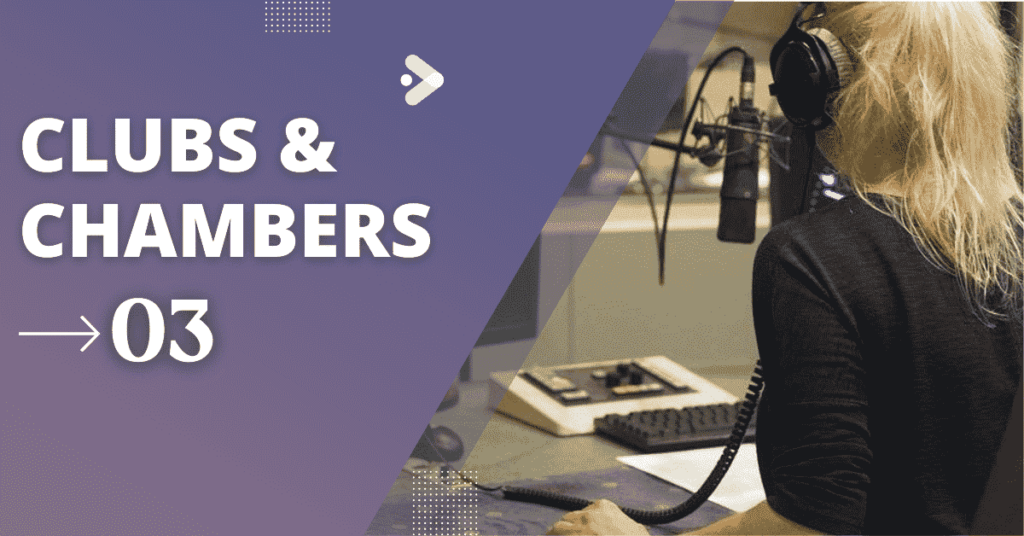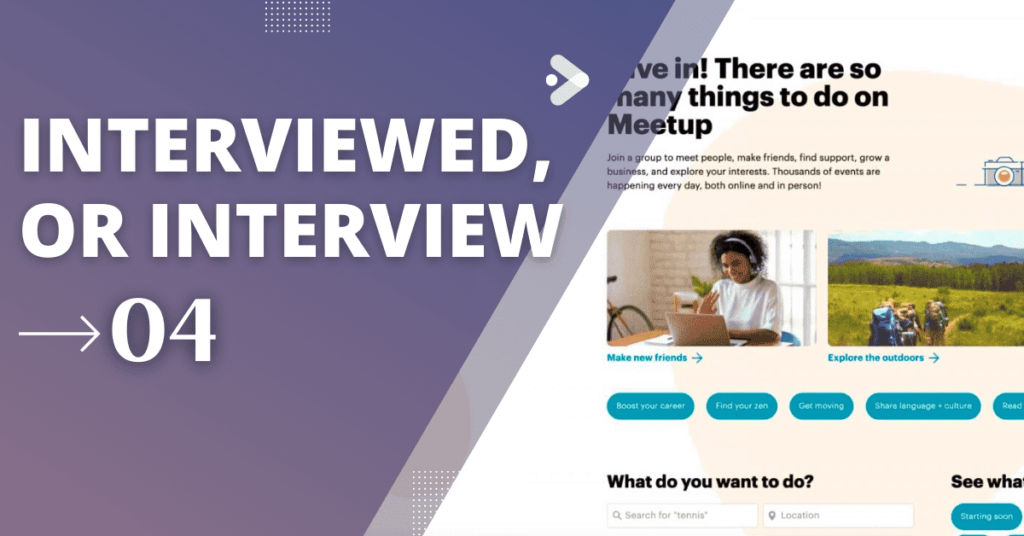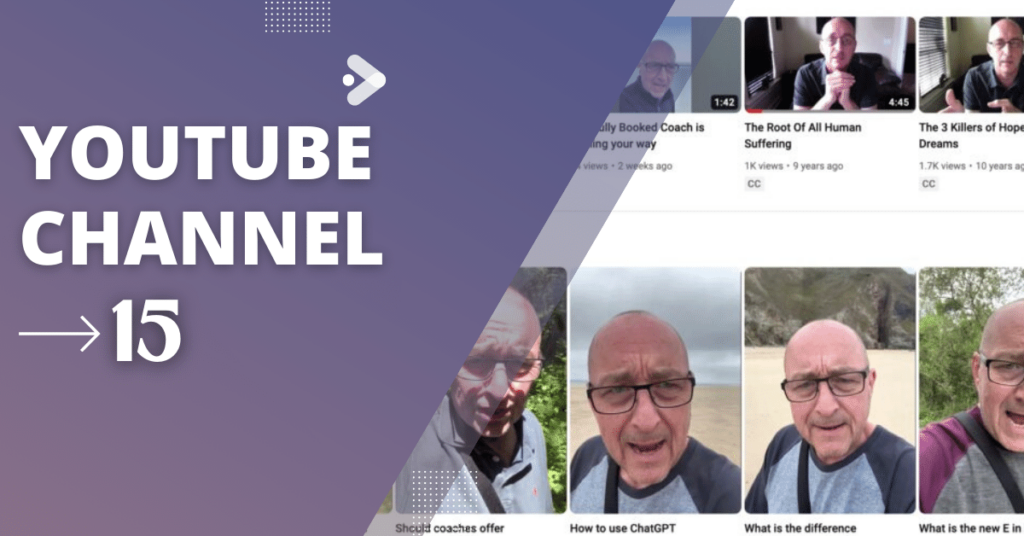Finding ways to get coaching clients is hard, but, it is very doable if you follow the advice in this post.
I will show you 15 proven ways to get coaching clients and move you ever closer to that elusive, fully booked status on your business, whether a life coaching business or any other online coaching business.
I have personally used all of these methods except Meet Up groups to get coaching clients. And I have had clients use that method successfully.
How to Get Coaching Clients Fast in 2024

1. Public Speaking To Get Coaching Clients (free)
If you are looking for the best tip on how to get coaching clients fast, this is the best advice I can give you (other than maybe #13).
I know it may seem obvious, but seriously, the quickest way to get in front of your first-paying coaching clients is to get out there and talk to as many groups of people as you can.
There are always organizations like the Chamber of Commerce, Rotary Clubs, and Lions Clubs looking for speakers to fill spots for their audience.
Unless you’re excellent, you may have to work for free or just for expenses. At least to begin with.
But look at it as if you are paving your way to reach an audience.
Speaking isn’t an easy way to get coaching clients. But it’s probably the easiest.
You’ll undoubtedly give talks that generate little interest in your audience. Sometimes, the organizers vastly overestimate how many people or potential clients will show up (trust me, this happens often).
But, as long as you choose your venues carefully, you will start picking up coaching clients.
And what I mean by choosing your venues carefully to get more potential clients is this.
Are the people or potential clients attending able to afford your coaching services fees?
Do these potential clients fit your coaching niche?
Do these potential clients even need your help?
If the answer to any of the above is ‘no‘, then unless you are talking to gain experience with those potential clients or as a way of giving back to your audience, you could be wasting your time.
I once had a coaching client who had spent over a year giving monthly talks at two different libraries without gaining a single new client for my coaching business.
It is hardly surprising when you consider that many people who visit libraries do so because they don’t have the money to buy books or pay for internet access and it was over $1,000 to work with her.
The other upside of public speaking is that if you get good at it, you can earn a lot of money.
Way more than you ever could from one-on-one coaching alone.
I have a friend who doesn’t get out of bed for less than $10k for a keynote, and he has to actively turn down coaching inquiries from prospective life coaching clients based purely on his speaking.

2. Join Toastmasters (paid)
I was a member of Toastmasters for about three years between 2008 and 2011, and guess how many members became life-coaching clients in all that time?
Zero!
So why am I recommending Toastmasters?
Aside from the massive bonus that it will help you improve your speaking skills and thus get paid speaking opportunities, it’s also supplied me with my first coaching clients indirectly, and it can do it for your online coaching business too.
Not from Toastmasters itself, but from two contacts I met there, and that is paramount for you wanting to become to get coaching clients.
One was a psychologist who sent me coaching clients more aligned with my skillset than his, and the other was a local businessman who sent me some of his employees.
Toastmasters is an excellent organization and an absolute must for you to join if you want to take advantage of option #1 of attracting coaching clients.
In the UK, it costs about £10 per month.
If you can’t afford that, then you probably can’t afford to run a coaching practice.

3. Clubs & Chambers (paid)
One of the best ways to advertise coaching services, and successful coaches I know have done this, is through the Chamber of Commerce, BNI, and Rotary and Lions clubs.
They all offer opportunities to attract new coaching clients. Perhaps your first coaching clients are there.
Of course, you must ensure that ideal coaching clients hang around in such places. For example, if your ideal client is a musician or athlete, then they’re probably not to be found at such meetings.
It can be hit and miss, to begin with.
Actually, it will probably be more miss than hit as you figure out which networking events/organizations work.
And which don’t.
I know one person who gave a talk to her Chamber of Commerce and generated $100k for her business.
Yes, $100k!
Her talk was nothing more than 30 minutes, explaining some aspects of accounts for small businesses.
She delivered massive value, and as such, I hired her and she was my accountant for almost a decade. And so did six other people.
As with online networking events, if people see you as a resource rather than just somebody there looking for a coaching business, they are more likely to hire you.
Similarly, they are more likely to remember you when talking to somebody else who may benefit from your skills. Talk about effective networking events!

4. Get Interviewed, Or Interview (free)
I used to average 20 or so interviews on podcasts per year while building my coaching business.
Whereas I don’t actively seek them out anymore, I only ever turn them down if they want me to pay them.
I don’t care how small your blog is, how few listeners your podcast has, or what the interview topic is (within reason); I’ll say ‘yes’.
In late 2018, I did an interview for a closed members area of another website that was only loosely connected to coaching.
The person interviewing me effectively charged people to hear me speak, and I was getting nothing for my time.
Er, except almost £10k of paying clients.
To begin with, there won’t be a line of people waiting to hear you dispensing pearls of wisdom, so perhaps you can become the interviewer and start a podcast.
While creating a podcast from scratch is rather time-consuming for new coaches, it is undeniably an effective free marketing strategy to connect with people in the industry, widen your business network, and build more authority in your chosen coaching niche.
Or maybe you could go to a site like Matchmaker.fm and register to be interviewed by podcast owners/hosts.
There’s also a cool Facebook Group called the Podcast Guest Collaboration Group that is worth joining for more opportunities./
You can also actively reach out to people in the industry and ask if they’d be down for an interview session with you.
Once your own podcast has gained listeners who are potential clients, you can offer interview swaps with other podcasters in the coaching niche.
One listener may need different coaches with different areas of focus so both you and your partner podcaster coach can benefit from each other’s audiences.
You would be amazed at how many people, even famous people, will agree to let you interview them.
Especially if they have a book being published or a product launch.
Then, when you interview them, you can ask them to mention it on social media. If they agree, then suddenly, you have acquired instant credibility.

5. Meetup Groups (paid)
In internet years, Meetup is ancient, having started way back in 2002.
But it still doesn’t seem well utilized by new coaches looking to acquire clients.
Covid hit Meetup hard, to begin with, because although the original meetings were arranged and promoted online, they tended to be in person.
But, like most things, everything just shifted online
And now they are back in person as well as online.
They can be soul-destroying at first because potential coaching clients may not show up to your meet-ups.
But that’s life. Client acquisition is a struggle.
Suck it up!
There are two keys to being successful with Meetup.
1. Be consistent and persistent.
Nobody sensible quits social media after a couple of weeks, complaining it doesn’t work. Meetup is no different.
Commit to doing regular meetings aimed at your ideal coaching clients for at least 6 months no matter who shows up. Or doesn’t.
2. Zoom in on your niche.
Don’t expect to call yourself a life coach and run a group on self-development and it to be successful.
Get narrow and talk to a problem or a small handful of problems that your coaching client niche wants/needs help with.
Then, over deliver at every single meeting.
Then overdeliver some more in any way you can think possible that is legal, ethical, and moral!

6. Use HARO (free with paid upgrade)
HARO stands for Help a Reporter Out.
It’s a site where journalists can post requests for people to interview on literally everything that reporters ever write about.
Not only does being featured in a newspaper or magazine help with credibility and social proof, but the backlink can also have massive SEO (search engine optimization) value.
Search engines love referrals from big news sites.
However, like any method that works, it’s competitive and there are close to a million users signed up for HARO.
Accordingly, you need to take the time to learn how to use it effectively to incorporate it well if it is to help you get coaching clients.
There’s little point in signing up and leaving your details up there and hoping you will get contacted.
You have to watch for the emails that are sent out three times per day and then you must send in a pitch explaining why you are the person the reporter needs to speak with.
Signing up for HARO is free. However, there are paid options starting at $19 per month.
If you want first access to requests, then joining at the $19 will prove worthwhile.
It also allows you to track one keyword.
Play around with the free version, and if you like it, upgrade.
Update January 2024: There is a lot of talk that HARO is moving to a paid version only as it’s getting flooded with AI-generated answers. Don’t see this as a negative, but a positive and test paying for a few months.
There are two similar alternatives, although I personally haven’t used either.
SourceBottle is, unsurprisingly, aimed at helping reporters find sources for stories.
And Muck Rake allows you to pitch ideas to journalists.
As with HARO, you will need to ensure your pitches are compelling, interesting, and succinct if you want to stand out.

7. Start an Outreach Program (free)
Outreach is when you actively contact others who can help you with a single objective.
You could do outreach for SEO (more later), where you ask people to link to a great blog post you have written around your coaching niche.
Equally, you could do an outreach where you target thought leaders in your coaching niche and ask them to share a post you have written. Just make sure you’re respectful and that your request isn’t the first thing you do when you follow/connect with them,
If you are a relationship coach, you can reach out to dating blogs.
Or, you could do an outreach to all your old coaching clients and ask them who they know who would benefit (like they did) from your coaching skills.
The few coaches who do outreaches tend to do them poorly.
Most marketers do outreaches poorly.
You really cannot expect to fire off an email to Tony Robbins saying, ‘Hey big fella, how do you fancy promoting my book for me? Love the teeth by the way!‘ and expect anything other than crickets.

You have to build relationships and/or offer something in return. Doing so will help build a strong personal network, leading to getting your first few coaching clients.
And you need to make your emails personal; I immediately delete every email I get that starts ‘Hi there’ or something else equally impersonal and generic.
But if I get an email ‘Hi Tim, I was reading your excellent post on self development books for life coaches, and you’re clearly a literary genius, you have my immediate attention.
Ok, maybe don’t suck up that much, but at least make it obvious you know me.

8. Hit Quora and Reddit (free)
I love Quora and Reddit, a little bit too much (in the former case), and I can get lost on there for way too long on occasion.
Quora is an ask engine rather than a search engine.
Reddit is a directory full of what are known as subreddits where people set up their own groups on every topic you can imagine, allowing them to talk to like-minded souls.
Both are brilliant.
Google struggles to deal with abstract questions like, ‘What’s it like to get shot when wearing a bulletproof vest?’ and ‘What is the nastiest thing a celebrity did to one of their fans?‘ – and yes, they are questions I recently read on Quora.
Also, the launch of Google’s SGE (search generative experience) and algorithm updates at the end of 2023 has meant it is pulling in a LOT of Reddit results into its results.
There has never been a better time for coaches to jump on Reddit.
Quora gets over 300 million monthly visits, and in 2020, Reddit had a staggering 2.0 billion comments left across over 3.1 million different subreddits.
As you can imagine, people are asking and answering questions on every conceivable topic.
There are three benefits to using both sites that make it somewhat of a no-brainer.
1. I had two life coaching clients come directly from people reading in-depth answers that I gave worth about $3k.
Note: Since I originally wrote this post, I have had three more coaching clients for The Fully Booked Coach (one in 2021 and 2022 and then another in 2023). One came from Quora and the other two from a coaching subreddit.
2. If you have written a killer newsletter article or blog post that answers a specific question, you can then look for that question being asked (and it almost certainly will have been) and then reposition that content as your answer
3. They can give you great ideas for writing and creating content!
The questions that generate a lot of comments/replies are the ones that fucking engage people!
Who knows? Maybe your first paying client is browsing Quora or Reddit, trying to find answers you can provide.
So write content aligned with that!
Reddit – Pro tip!
AMA’s (ask me anything) are very popular on Reddit.
Find a subreddit (or ideally, a few of them) that caters to your niche.
Then, contact the niche owner and offer to be a guest on an AMA.
They will then invite their group members to, yes, you’ve guessed it, ask you anything about what it is you do.
Just be aware, though. Reddit is a pretty honest, no-holds-barred environment, so if you get upset easily or are unsure of your level of expertise, don’t do this.

9. Guest Post (free) for coaching clients
One of the most common but effective strategies on how to market your coaching business and services is through guest posts.
I have written dozens and dozens of guest posts and have generated a lot of coaching clients online from them.
And when I say a lot, I mean a lot!
Guest posting has brought me well over $250k in my life coaching business, directly or indirectly.
And like Quora, it’s also the gift that keeps on giving.
I have guest posts from 15 years ago or more that are still being found by people who wouldn’t have necessarily found me otherwise.
Only recently I signed on a new coaching client after she followed a link from a guest post I had written in 2012.
Broadly speaking, there are two approaches to writing guest posts.
- Aim for high-traffic, high-profile blogs with as high domain authority as possible so you can get the SEO benefits (more in a moment) and may occasionally grab a new coaching client online and new subscribers.
- Choose smaller, more niched blogs where the SEO benefits can sometimes be minimal, but you are delivering your message straight into the lap of your ideal coaching clients.
If you’re looking to build a blog readership and you don’t have thousands of dollars to throw at marketing, then guest posting can be the quickest route to online coaching success.
Having said that, you have to be a competent writer and have a strategy.
And guess what, I can help you with that!

10. Make The Most Of Social Media (especially Facebook groups)
After my newsletter email list, my Facebook group is my single biggest source of direct clients.
Other than failing to hire a business coach sooner, making the Facebook group unavailable to people who had never worked with me was the single biggest life-coaching business mistake I’ve made since becoming a coach in 2005.
Initially, it was only for clients and people who’d taken The Fully Booked Coach Course (formerly Coach the Life Coach).
And it was about as active as a very old sloth with an ingrowing toenail and arthritic knees.
Which is the same position most Facebook groups find themselves in.
But are there 12 things you can do to rectify that:
- Post….a lot in Facebook groups. As a rule of thumb, the more you post the quicker you will grow
- Post consistently. Don’t post 27 times in one day and then fuck off to the beach for a month to ponder the meaning of life – this is absolutely crucial
- Welcome people. But don’t use the generic welcome. Make it personal so you look like you are genuinely pleased they joined because you should be because these are potential coaching clients
- Ask questions of people. People love to give you their opinion and this creates conversations and people bickering with one another which should be kept convivial
- Answer questions when people ask them no matter how benign they may seem
- Be fine with being challenged. I fucking love it when people challenge me because it gives me the opportunity to either learn or look somewhat knowledgable
- Share anything that you think will help your members
- Keeps things on track. Personal stuff is fine if it relates in some way to what you do (or is on brand), but don’t start ranting about climate change being utterly reprehensible…..even though it is
- Don’t link out too much. Facebook prefers people to stay on Facebook. If you’re always trying to send people to other sites, they will not share your group
- Invite your ideal coaching client to join your site. As it grows, Facebook will send you members, but in the meantime, you have to work at it.
- Be patient. It’s a fucking slog to begin with, but stick with it

11. Let Google Help You (free)
Potential clients coming from Google are often hard to track.
Sure, there will be a few searching for a marketing coach for coaches on Google to help them get clients, and then email me directly from the first point of contact.
However, most will browse around and maybe sign up for my newsletter email list or join the aforementioned Fully Booked Coach Facebook group.
As such, when they finally decide to hire me, they often forget how they originally came to find out about me, making them tough to track.
Fortunately for you, and unfortunately for them, most life coaches are totally and utterly in the dark on utilising basic SEO, often because they are focused on ‘quick wins’.
This means you can step in and take advantage by understanding long-tailed keywords, knowing how to optimize every post, and being cunning with your blog post headlines so you attract interest.
There is a technical element with SEO that you need for highly competitive industries, but coaching isn’t a highly competitive industry for SEO; in fact, it’s wide open.
Getting the basics right to start acquiring coaching clients isn’t that complicated.
You could read SEO for Life Coaches – The Ultimate Guide if you want to know more.

Run A Webinar (free when the platform is bought)
You will need webinar software to do this properly.
I have used WebinarJam (al) in the past, and I’m just about to go back because I really like the functionality.
However, for smaller numbers, you can use a standard paid Zoom account without necessarily upgrading to Zoom Webinar, which is pricey at around $75 per month at the time of writing..
Let’s make one thing perfectly clear: webinars are not as effective as they once were, especially without building complex and pricey funnels.
The internet is suffering somewhat from webinar fatigue because so many people are running them to attract coaching clients.
It’s not necessarily the quantity that is making it harder to get people to sign up.
It’s the low, often spammy/salesy, quality.
Many webinars are nothing more than sales vehicles that use bait-and-switch tactics to get attendees to sign up, and then deliver no real value.
As such, people are leery of signing up, and you need to work hard to ensure they understand that your webinar will be different.
Make your webinars focus on value to the attendee and avoid selling too hard unless you’re prepared to invest a shit load on Facebook ads generating new people because nobody comes back.

13. Go old school! (free)
All of the above are great methods, but if you need clients quickly, then this video will explain in under one minute the fastest way you can do that – and it’s free.

14. Form joint ventures (free)
Ever heard the saying, “If you want to go fast, go alone. If you want to go far, go together”?
Well, you have now.
Collaborating with businesses that complement yours can be a fantastic way to reach more potential paying clients.
Let’s say you’re a career coach. You could collaborate with a resume writing service or a recruitment agency.
Or if you’re a health coach, you could partner with a local gym or a nutritionist. The possibilities are as endless as ChatGPT’s imagination.
You could offer joint workshops, refer clients to each other, or even create a package deal.
Just make sure you choose businesses that share your values and commitment to quality. After all, you’re not just recommending their services. You’re putting your reputation on the line.
So get out there and start building those partnerships.
Remember (and please don’t vomit), teamwork makes the dream work!

15. Start a YouTube Channel (free)
YouTube isn’t just for cat videos and makeup tutorials.
It’s the second-largest search engine in the world, and people are looking for advice on all sorts of topics, including coaching and self development.
And not only is YouTube itself a huge source of searches, but it’s also a massive source of search traffic.
This means that Google (who owns YouTube) searches there to satisfy their user’s search queries too.
Plus, changes to Google and the rollout of SGE (search generative experience) in 2024 means that video is only going to become more important.
Read about Google’s SGE and how it will impact YOU here.
So why not start a channel and share your coaching wisdom with the world like I have?
Now, I know what you’re thinking. “But I got all nervous going on camera Tim, I might fuck it up. Or people might not like me.”
Oh dear, that’s terrible, and I’m so sorry to hear about your insecurities and doubts because nobody else has any.
Let’s have a hug.
Feeling better?
Good, now get your shit together because we all have to do stuff we don’t want to do.
It’s called life, and you literally cannot become a fully booked coach without stepping outside of your comfort zone.
Just focus on providing value to others rather than on how you feel.
If you have enjoyed/benefitted from this post, please share it on social media.
If you want help to acquire clients for your coaching business practice from somebody with a combined 38 years of sales, marketing, and coaching experience, check out this page.


Thanks Tim! As always, you give great advice and insight!!
Glad it’s helping matey!
Thank you! Great tips and super helpful!
Thanks Heather!
Thank you Tim. This was extremely valuable information. I will start prioritizing and take these tips to start my practice.
Great stuff Tammy!
I appreciate your genuine, real-world advice!
Thanks Ann Marie!
Hello,
Thank you for your inspiring article. I certainly have gained more insight and am excited about using the tools you have shared.
I do have to share that there are some typos in your article. I wanted to make you aware since some do not take written work and research seriously if there are typos. In peace and wellness, Donalee
Thanks, and sorry!
Thanks a zillion, Tim! I find your comments very helpful and insightful. God bless you for the generous tips you shared. I am trying to find some form of self employment in Singapore now. Being over 60 years old, and with the current covid 19 situation, I guess I shall just have to shelve my ambitious idea of becoing a life coach.
I wish you well and every success in your career/ business.
Thanks Catherine and the best of luck to you too. It’s never too late!
Thanks Tim, I found these tips helpful. I have tried so many things and followed the advise of so many and recently have spent thousands in courses, even a business coach, realising I need help to make it work. I am about to launch a masterclass and was appreciative of your webinar advice. No success in a client yet, but here’s hoping the masterclass will work! I love the idea of Quora! as FB business page and group page are not doing anything.
Like Catherine, I am in my 60’s and am determined to get my coaching business going. I am passionate about doing so for two reasons, the first is my niche, helping people to heal and recover from emotional and narcissistic abuse, something I experienced and came out on the other side of. The second reason is that I am starting life over again at 66 after leaving the abusive relationship and my intention is to generate an income from coaching.
I am happy I came across you site, thanks for giving good content.
I have a lot of success with my Facebook Group, BUT it is a lot of work, especially at the beginning.
Good luck with it Cathy!
Thank you: this was informative. I am interested in your course. Hoping to be a part of it the next time it opens up!
A very belated apology Carol. I just fished about 25 comments out of my spam folder and this was amongst them. Sorry you missed the course 🙁
Hi Tim… I am walking the path of the newsletters and links you put in there… so doing my reading and building up my page right now. As I could not enter the Fcbk group (no answer came back, although when I re-enter my patetion it statted that it was ‘in progress’ or something similar) I also wrote to you reacting on other articles.. I now you just jump back to UK so at some point you will be back 🙂
Camille
Hello Tim,
Very useful information here. The Quora tip I liked especially. However, I will be incorporating all in my efforts.
Tim, that was a really good read.
I am just about to start out on my ICF accrediation journey. Like others I am going to be on the look out for coaching opportunities. I enjoy coaching and do a lot of it (and mentoring) within my organisation.
It is great doing something that helps other people and getting out there to tell people about what you have to offer is the only real way to get started.
I’d like to keep in touch.
Best regards
Andrew
I’ve no clue why you weren’t let into the FB group Camille because that is checked daily and nobody is left in pending. They are either allowed in if they are genuine or not of they fail to answer the questions.
And apologies for the terribly late reply to you, Melissa, and Andrew as I had to fish you all out of the spam folder. I have had a stern talking to my spam plugin!
I hope you LOVE coaching mate because it will probably take that to succeed. I enjoy cooking, but I suck at it 😉
Super helpful as always, Tim. Thanks!!!
Thanks!
Love this information.
Justbstarting my journey so good have things I can do and enjoy ish lol
Very easy insightful read.
Thanks
Thank you for sharing this information. I teach coaches how to use their intution more for better outcomes and have found some success with combining my connections from doing psychic readings and psychic art – generating leads from this- so promoting any kind of cross-over activity/business is a good avenue for me.
Yes, this is very good information and for newer coaches, this can be overwhelming. I would add referrals and networking by finding how to hang out where your clients hang out or coaches who serve similar clients. one third of my clients come from referrals and my other coaching colleagues since I’m often the only dating and relationship coach in the room/zoom meeting! Keep up the great content. Your service is greatly appreciated.
Totally agree about referrals Amy, they are the best of the best. but they have to start somewhere.
I used to (almost) always be able to track a referral back to see where it originated.
Thanks Tim, A really helpful article and will look into some of the suggestions :). Loved the ‘blagged it with a boatload of confidence’!
I shall give you another tip use a Gravatar and ALWAYS link back to your website when you leave a comment. I’ve literally had clients from blog comments I’ve left.
Hi Tim,
Thank you so much for your insights! My niche is coaching Law Enforcement Spouses and Family members who are navigating Law Enforcement Life. I am looking to create a list of amazing people to join me in a FB Live to discuss coaching and how it can help the Law Enforcement community by saving marriages, saving families, and saving lives. I’d be honored to have you as part of this series. I’ll be emailing you soon!
Thanks again!
Thanks for writing this! A lot of great content. I liked your networking ideas like interviewing or being interviewed and zoom meetings in your niche.
What I really liked was the Quora idea. You’re right, Google is a search engine and not perfect (yet) at asking specific questions. I am glad I read this, I am going over to try that now.
Very creative ideas, lots of useful information here thanks for posting!
Such great ideas and avenues for client searching techniques. My business is very new and I’m working through the intricacies of business for social media. Avenues like Quora are great for exercising my professional muscles.
Thanks Christine and good luck with your jouney!
Thanks Tim, this was lovely to read and full of easy to understand good news!
Glad you found it helpful Alison and thanks for commenting!
Hello Tim,
Thank you for a wealth of tips, especially for a newbie about to embark on his Lifestyle Coaching journey
Good luck with it Jimmy!
Wow! So many fab tips. Thanks so much. I’m on my course at the moment so will be looking more deeply into which points I could use soon.
Good luck with your course Leonnie and the same when it comes to getting coaching clients!
I wanted to add a note of support for HARO. I submitted two pitches to two different journalists and both were accepted and published. One on Authority Magazine, one on UpJourney.
The emails are super easy to scan for any topics in your wheelhouse and the reporters are great to work with. I’m on the free newsletter for HARO and it’s been worth it!
I used it to help me get coaching clients waaaaay back, but tbh haven’t even had an account in 10 years but glad it’s working for you Christine.
Thank you so much! I will definitely use some of your advices right away.
Awesome article! such great content. I took tons of notes. I also got a few laughs along the way. Very well written!
Thanks Heather, I hope it. helps you to get coaching clients!
Great content and really useful tips that I haven’t thought about. I love the practicality of ideas that everyone can try both paid and free. thank you!
Happy it helped Tracy, now go and get clients!
Hi, Tim. Thank you for all these great tips, and the many chuckles I had throughout your article. I’m off to put some of them in motion now 🙂
Glad it helped Christina-Rae! I just read your About page. Wow, that is some powerful stuff and a huge congrats to you for getting through it all. I’m not sure i have that level of mental strength.
Your blog is a treasure trove of inspiration and motivation.
Hey Tim, This was very helpful and has given that extra boost of inspiration needed to keep going!
What I have found that is helpful is to go to in-person or online events / networking groups. This could be in your niche or literally anything, I have gone to fitness groups, business networking, social events e.g. car races, etc. You can bring a friend to help you feel more at ease or go by yourself. The key is to talk to people, the first few people you talk to you may just word vomit or things might not make sense but then gets easier. The key is not sell anyone, just introduce yourself and ask them about what they do, why they like it etc. People as you said, love sharing about themselves, so let them do that. In big groups, you can place yourself last. This allows you to listen to others talk about who they are and what they do, then you can introduce yourself. If you feel there is a particular person that is in your niche then you can tailor ‘what you do’ to them. Let them make the decision to chat to you, if you feel compelled to reach out then do. It is still their decision to contact you.
Hope that helps 🙂
Fabulous! And well done you Rachel, for doing that and not just sitting on your arse and wondering where all your clients are!